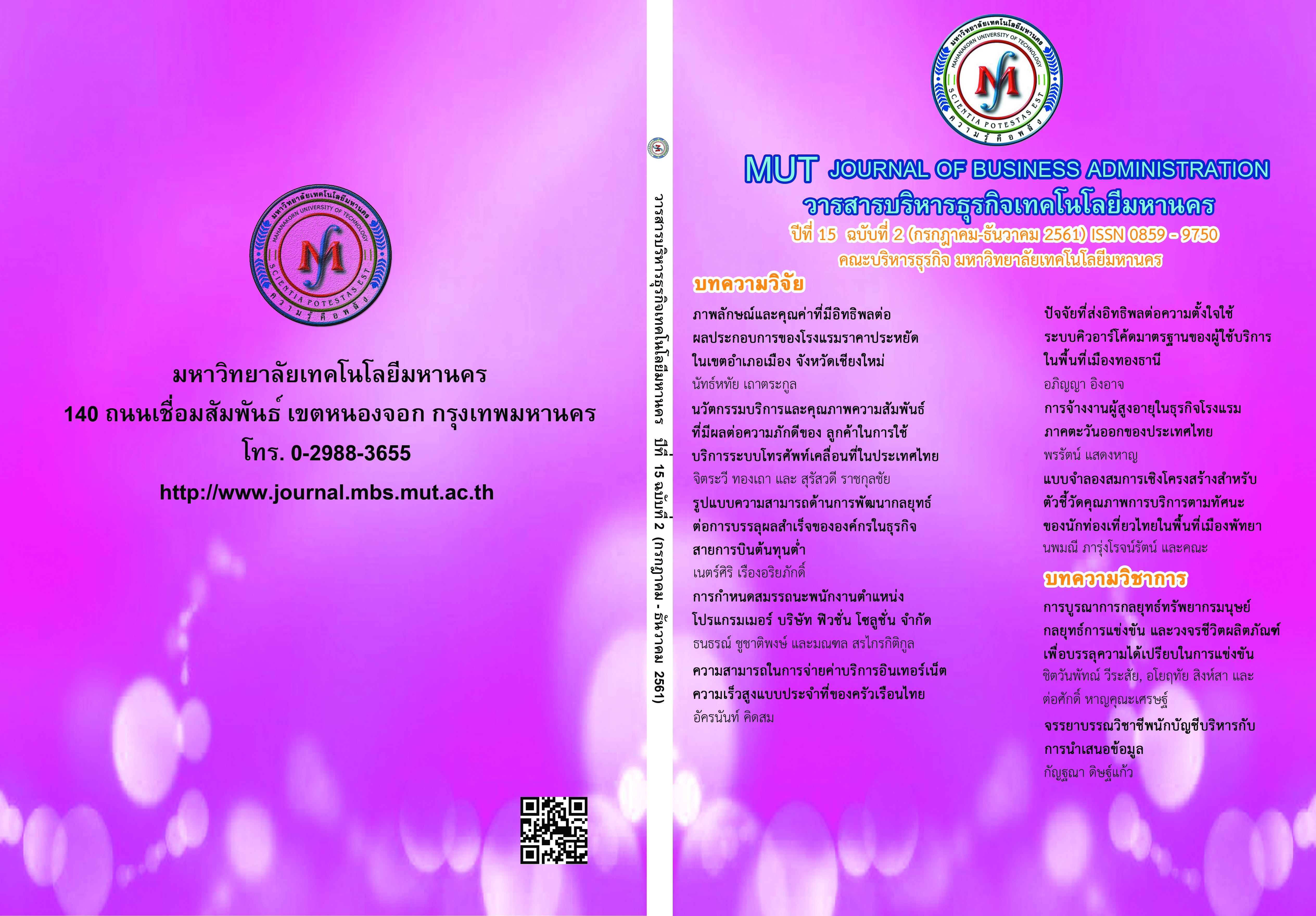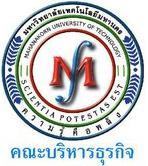Structural Equation Model for Service Quality Indicator from Thai Tourists in Pattaya
Keywords:
Service Quality, Hotel, Customer Intention to RevisitAbstract
This research paper explores service quality measurement for hotel in the customers' point of view. The purposes of this paper are to determine number and weight of the finding service quality indicators. Then to utilize the results in calculating the purposed service quality index. Moreover, a relationship between service quality scores obtained and probabilities of revisiting the hotel is tested. Hotels in Pattaya are the target samplings.
From the Exploratory Factor Analysis-EFA, it is found that there are five components defining service quality. Component 1 is the basic and extra services. Exclusive services, convenience and safety, physical evidence, and contract performance are the component 2 to 5 respectively. Processing data gathered by a Structural Equation Model-SEM concludes that component 1, 2, and 3 can statistical significantly explain service quality scores. The score also can be proved to be a significant variable explaining probability of customer intention to revisit the hotel. This result robustness is confirmed by parameter estimation in Logistic Regression. Business policy recommendation for increasing customer satisfaction towards service quality, thus chance of revisiting the hotel can be summarized as followed. Main points of concerning are primary needs fulfillment, additional services offered, convenience and safety, and lastly creatively services and suitable customer welcoming. For a future research recommendation, studies of service quality in a context of different organizational cultures should be investigated. This is to complement findings from customers' point of view and to complete the study from both internal and external organizational contexts.
Downloads
Published
Issue
Section
License
ข้อความ ข้อคิดเห็น ข้อมูล เนื้อหา รูปภาพ แผนภูมิ แผนผัง เป็นต้น ที่ปรากฏและแสดงในบทความต่างๆ ในวารสารบริหารธุรกิจเทคโนโลยีมหานคร ถือเป็นความรับผิดชอบโดยตรงของผู้เขียนบทความนั้นๆ มิใช่เป็นความรับผิดชอบใดๆ ของวารสารบริหารธุรกิจเทคโนโลยีมหานคร และมหาวิทยาลัยเทคโนโลยีมหานคร
บทความที่ตีพิมพ์ในวารสารบริหารธุรกิจเทคโนโลยีมหานคร ถือเป็นลิขสิทธิ์เฉพาะของคณะบริหารธุรกิจ มหาวิทยาลัยเทคโนโลยีมหานคร หากบุคคลหรือหน่วยงานใดต้องการนำทั้งหมดหรือส่วนใดส่วนหนึ่งไปเผยแพร่ต่อหรือเพื่อกระทำการใดๆ จะต้องได้รับการอนุญาตเป็นลายลักษณ์อักษรจากคณะบริหารธุรกิจ มหาวิทยาลัยเทคโนโลยีมหานครก่อนเท่านั้น


